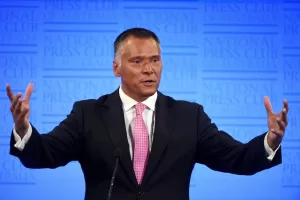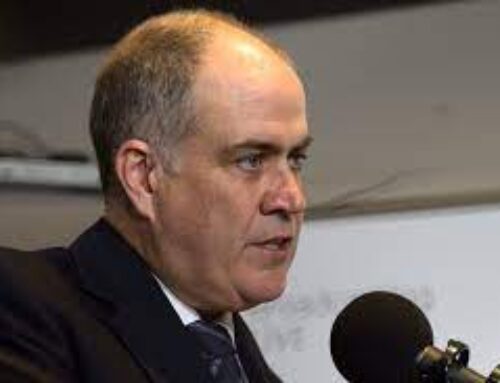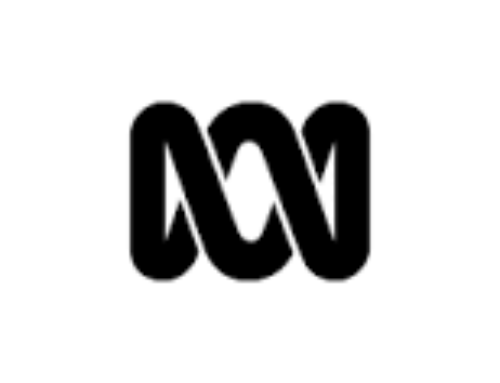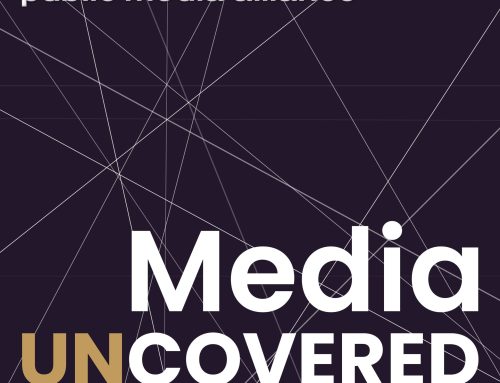ABC’s self-inflicted woes not just a matter of opinion
Stuart Littlemore, David Salter
22 May, Sydney Morning Herald Digital Edition
What a shemozzle. Stan Grant, who writes a weekly opinion column for the ABC website, steps down from his Q&A hosting role on ABC TV because he believes ABC management isn’t defending him from the online abuse directed at him after comments he made on another ABC program.
Do we think there’s a problem here? Yes, we do. The problem is the immediate – and immediately obvious – consequence of journalists and their opinions.
The ABC has catastrophically undermined its authority and independence by permitting journalists to post personal commentary on the corporation’s digital outlets, and to parade their egos on social media. Thus, we get defamatory stupidities on Twitter that cause huge damage to the ABC. Thus, we get the Stan Grant saga.

By failing to draw clear contractual guidelines for ABC staff, whether on-air or not, the corporation has abandoned a longstanding policy that ensured impartiality. The personal politics of a presenter are irrelevant, and should never be evident.
For more than a generation, ABC complainants have railed against pinko political bias, inner-city lattesipping and a Sydney-centred perspective. These paid objectors – particularly those in the employ of Rupert Murdoch – raise little else, barking up the wrong transmission tower. The ABC’s real problem is competence, or the lack of it, and a failure to recognise that staff cannot have a foot in both the fact and opinion camps.
There is also a too-general level of acceptable incompetence in the ABC’s output. We attribute this decline in journalistic standards to two main factors: lack of training, and low-level editorial oversight.
For decades, ABC News selected its cadets for their competence in the English language, and trained them in radio and TV technique. Cadets were attached to rounds people to gain experience in covering specialisations and developing sources. Higher-graded reporters became experts in their own fields and were familiar to the audience, relied upon and respected for balance and insight. Now, it’s an everybody-gets-a-go culture, where valued journalism is often sacrificed to the self-congratulation of inclusivity and diversity.
Command of spoken English is the craft of broadcast journalism, but it is lost every day in ABC scripts that betray an ignorance of grammar and vocabulary. Those standards only force the inference that there are few, if any, skilled producers or sub-editors shaping the raw copy and its on-air delivery.
On the ABC News website, too few of the stories are authentic hard news. Instead, we get clumsily written commentary and ‘‘ analysis’’ , clickbait puffs and folksy features contributed by staff in the regional outposts keen for a national byline.
Clearly, a significant segment of the traditional ABC audience is unhappy with much of its current output. Metro radio audiences have slipped, while support for the freeto-air TV network is eroded by alternative digital sources.
The solution is not some lofty executive deeming that the corporation needs to restructure and pursue a younger audience. That defies the demographics. It’s the older segment that is growing fastest. Attempts to make the ABC flashier – and trashier – only alienate its loyal and mature audience.
In 1945, the chairman of the then ABC Commission, Richard Boyer, gave a speech in which he said the public broadcaster should ‘‘ stand solid and serene in the middle of our national life, running no campaign, seeking to persuade to no opinion, but presenting the issues fairly and fearlessly for the calm judgment of the people’’ .
Could the current ABC chair and board read those words without squirming?
Stuart Littlemore, KC, is a barrister and a former ABC journalist. David Salter is an independent journalist and a former ABC TV producer.



